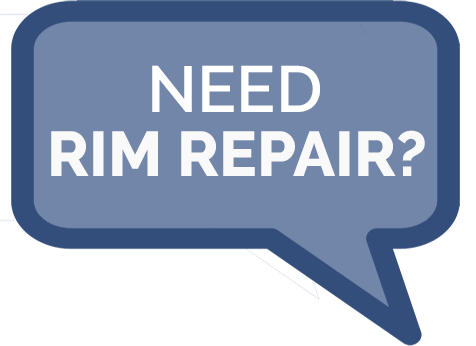5 Signs Your Tire Rim Needs Repair
5 Signs Your Tire Rim Needs Repair
Tire rims are essential components of your vehicle’s wheel system, responsible for holding the tire in place and ensuring a smooth ride. Damage to your rims can lead to poor handling, reduced safety, and even costly repairs if not addressed promptly. Recognizing the early signs of rim damage can save you from more extensive and expensive fixes down the road.
Here are the top five signs that your tire rim may need repair:
1. Visible Cracks or Chips
One of the most obvious signs of rim damage is visible cracks or chips on the surface of the rim. These imperfections can be caused by hitting potholes, curbs, or other road hazards. Cracks can compromise the structural integrity of the rim, leading to potential air leaks or even a blowout.
What to Look For:
-
Small or large cracks along the rim's edge or surface.
-
Chips or dents that may not seem severe but could lead to bigger issues.
Why It’s Important: Cracks and chips can allow air to escape from the tire, leading to slow leaks and a decrease in tire pressure. They can also worsen over time, especially under the stress of driving, potentially leading to complete rim failure.
What to Do: If you notice any cracks or chips, it’s crucial to have a professional inspect the rim. Repairing minor damage early can prevent more serious issues, but some cracks may be too severe and require rim replacement.
2. Bent or Warped Rim
When your rim takes a hit, whether from a nasty pothole, a curb or simply through the grind of daily use, it can end up bent or warped. This type of damage is a glaring red flag that your rim needs attention. A bent rim not only disrupts the smooth ride you’re accustomed to but can also lead to uneven tire wear, a shaky steering wheel, and compromised vehicle handling.
Signs to Watch For:
-
Gaps between the tire and the rim that aren’t consistent all the way around.
-
Noticeable bends or deformations around the rim’s edge.
-
A persistent vibration or wobble felt through the steering wheel.
Why It Matters: A rim that’s bent or warped can throw off your tire alignment, affecting how your vehicle handles and feels on the road. This misalignment can put extra pressure on your suspension system and cause your tires to wear out faster than usual.
What to Do: Have a professional assess the rim to determine whether it can be straightened or if a replacement is necessary. While many specialists can repair a bent rim, severe warping might require a new rim to maintain optimal performance and safety.
3. Corrosion and Rust
Rims are particularly susceptible to corrosion and rust, especially in regions with harsh weather or when driving through areas salted for winter or exposed to various chemicals. Over time, rust can compromise the rim’s strength and its ability to keep the tire securely in place.
Signs to Watch For:
-
Rust stains or discoloration on the rim’s surface.
-
Paint that is flaking or peeling off.
-
Crusty, rough deposits accumulating along the rim’s edges.
Why It Matters: Rust and corrosion can gradually erode the rim’s material, leading to potential leaks and weakening its structural integrity. This is especially problematic for aluminum rims, which are particularly vulnerable to moisture-related corrosion.
What to Do: If you spot signs of rust or corrosion, it’s important to have a professional evaluate the damage. Depending on how severe it is, the rim may need to be cleaned, sanded, and repainted. In cases of extensive corrosion, however, a replacement might be necessary to ensure the rim remains reliable and safe.
4. Air Leaks
Air leaks may seem like a minor issue, but they can be a significant indicator that your rim could be damaged. Persistent loss of tire pressure often points to a rim that might be cracked, bent, or not seated correctly.
Signs to Watch For:
-
Tires that lose pressure frequently, even after regular inflations.
-
A faint hissing noise when the vehicle is stationary.
-
Uneven wear patterns developing on the tires.
Why It Matters: An air leak can lead to decreased fuel efficiency, compromised handling, and a higher risk of a blowout. Addressing air leaks quickly is crucial to maintaining the safety and performance of your vehicle.
What to Do: To pinpoint the source of the leak, have a professional conduct a thorough inspection. They’ll use specialized tools to detect the issue and decide whether the rim needs repair or replacement.
5. Uneven Tire Wear
If you notice your tires wearing unevenly, it might be a sign of rim damage, such as misalignment or bending. This problem can disrupt the even distribution of the tire’s contact with the road.
Signs to Watch For:
-
Excessive wear on one side of the tire.
-
Bald spots or irregular tread patterns.
-
Increased noise or vibration from the tires.
Why It Matters: Uneven tire wear can significantly impact your vehicle’s stability and handling. It often points to an underlying issue with the rim or alignment, which, if left unresolved, can lead to more severe problems.
What to Do: Have your tires and rims examined by a professional to identify the cause of the uneven wear. Proper alignment and rim repairs can help restore even tire wear and enhance your vehicle’s overall performance.
RIMGUARD INC. | RIM REPAIRS
If you spot any of these signs, contact Rimguard, Inc. immediately. We can repair and refinish curb damage, bent rims, corrosion, and cracked rims at our Raleigh location. We also specialize in powder coating, re-machining, brake caliper painting, and custom refinishing! Reach out to us today!
READ MORE:

